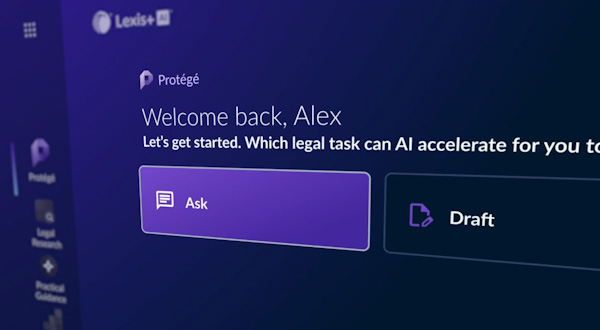A Qualified Yes

Illustration by Lino
Yes, but. that is the essence of a recent ABA opinion on the question of whether it is ethically permissible for U.S. law firms to outsource work to support services in foreign countries.
Yes, U.S. lawyers may outsource work under the ABA Model Rules of Professional Conduct, concludes the Standing Committee on Ethics and Professional Conduct in its Formal Opinion 08-451 (PDF) issued on Aug. 5. (The Model Rules are the basis for most state professional conduct rules, which directly govern lawyers.)
But the opinion cautions that outsourcing may lead to ethics violations for a U.S. firm if it does not properly manage the arrangement.
U.S. law firms are sending a growing amount of legal work offshore, especially to India.
“The outsourcing trend is a salutary one for our globalized economy,” primarily as a means of holding down costs, the ABA ethics committee opinion states. Outsourcing also enables smaller firms to take on the kinds of larger, discovery-intensive cases that they otherwise might not be able to handle.
But although there is nothing inherently unethical about outsourcing, the opinion continues, a number of ethics issues may arise unless the lawyer in the United States maintains appropriate control over how that work is done overseas.
The opinion notes that the U.S. lawyer may not compromise the competence requirement in Rule 1.1 of the ABA Model Rules of Professional Conduct that the lawyer display “the legal knowledge, skill, thoroughness and preparation reasonably necessary for the representation.” The opinion also concludes that Model Rules 5.1 and 5.3—which require a lawyer to ensure that work performed by others under the lawyer’s supervision conforms with ethics standards—apply to assignments outsourced overseas.
But meeting those requirements can be a challenge when the work is being done thousands of miles and several time zones away. The committee recommends that, prior to outsourcing legal work, a U.S. lawyer conduct reference checks and background investigations of foreign providers and intermediaries; personally interview the principal lawyers involved in the project, and assess their credentials and qualifications; evaluate whether the regulatory framework governing those lawyers is compatible with U.S. standards; and determine whether legal documents and other materials might be susceptible to seizure despite claims of client confidentiality. When the outsourced work is particularly sensitive, the security of the foreign provider’s premises and computers should be evaluated.
TELL THE CLIENT
Written confidentiality agreements “are strongly advisable in outsourcing relationships,” the committee’s opinion states. “Likewise, to minimize the risk of potentially wrongful disclosure, the outsourcing lawyer should verify that the outside service provider does not also do work for adversaries of their clients on the same or substantially related matters; in such an instance, the outsourcing lawyer could choose another provider.”
It may be necessary for a U.S. lawyer to obtain a client’s informed consent to outsource work in order to meet the requirements of Model Rule 1.6, the ethics committee states. This distinguishes the new opinion from Formal Opinion 88-356 (Dec. 16, 1988), which ruled client notice unnecessary in most cases when legal work is performed by a temporary lawyer—because it was assumed that such work would be closely supervised. “That ordinarily will not be the case in an outsourcing relationship,” states the August opinion. The implied authorization of Rule 1.6 to share confidential information among lawyers working on a case “does not extend to outside entities or to individuals over whom the firm lacks effective supervision and control.”
The benefits of outsourcing make its continuing growth all but certain. As U.S. lawyers embrace the practice, however, they must remember that the application of ethics rules does not necessarily diminish with distance.
Eileen Libby is associate ethics counsel for the ABA Center for Professional Responsibility.



